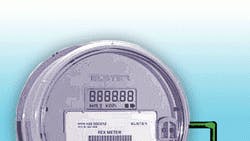Getting smart about smart meters
The SmartGrid Consumer collaborative (www.smartgridcc.org) wants people to know about the benefits of the smart meters being rolled out across the country by utility companies. One of the first steps they are taking is to debunk some of the myths surrounding smart meters.
Myth 1: Smart meters are not as accurate as analog meters. The accuracy of smart meters are checked by the companies that manufacture them. Public service commissions require those manufactures to supply independently certified test results. And prior to installation, utilities also perform accuracy tests. All of this testing ensures smart meters are accurate, often more accurate than their analog counterparts.
Myth 2: Wireless smart meters are a health threat. The World Health Organization reviewed the scientific literature on smart meters (over 25,000 articles over 30 years) and concluded that they do not generate enough RF energy to harm humans, For example, the RF energy emitted by smart meters is well below the limits set by the FCC. And other common consumer devices such as cell phones, baby monitors, satellite TVs, and microwaves put out more “stray” RF than the new meters. In fact, to get the RF equivalent of using a cell phone for 15 minutes a day for a year, someone would have to be exposed to a smart meter for 375 years.
Myth 3: Smart meters won’t keep data secure. Utilities are ready to use the same security and encryption technology used to safeguard data by the banking, credit card, and cable TV industries. Utilities currently protect customer data and they will continue to do so when they switch to smart meters. In fact, utilities are working with national consortiums of cyber-security firms to regularly audit their data-protections protocols to ensure privacy and the security of the new meters,
Myth 4: Smart meters are fire hazard. Smart meters meet all safety requirements and standards in the National Electric Safety Code. And public service commissions require that smart meters be independently certified as safe and resistant to heat, fire, voltages, and surges. But it’s important to ensure the meters are installed or removed by trained professionals.
Myth 5: Smart meters do not benefit consumers. Smart meters measure electricity use and send that data directly to the utility, eliminating estimated bills and surprises on electric bills. They also give consumers near-real-time data on energy use, letting them know how much electricity they are using and what it costs at that time. This lets consumers adjust their habits to reduce their electric bills. And smart meters quickly report any power outages, so the power company can fix the problems quicker.
